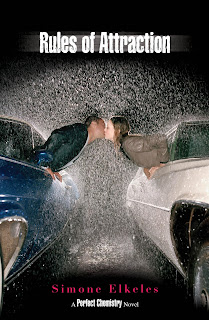STATUS: Was out of the office last week. Although I worked, it’s not quite the same as getting stuff done while there.
What’s playing on the iPod or the XM radio right now? CALIFORNIA DREAMIN’ by The Mamas & The Papas
This past weekend I attended the Missouri Writers Guild Conference in St. Louis and did my infamous “Agent Reads The Slush Pile” workshop.
For those of you who don’t know, this is the workshop where I pretend that I’m sitting in my office reading the opening two pages of a submission. In reality, this would all be done electronically and there would be no volunteer reading the entry aloud but you get the picture. In the workshops, as the volunteer reads, I’ll say “stop” if I wouldn’t have continued reading and state why. If I would have read on, we’ll hear the first 2 pages in its entirety.
I personally think this is probably the toughest workshop a writer can participate in but it’s always wildly popular. I do my best to be encouraging but brutally honest—a tough balancing act.
As I’ve given this workshop before, I can tell you several things about it:
1. I always begin with a dire warning and remind writers that they might not be ready for this. I’ve yet to have a participant withdraw an entry (and that always surprises me).
2. 99.9% of what I’ll see in the workshop is not ready for an agent to read.
3. For this workshop, only one entry made it past page 1. The majority of the others, I said stop within the first 2 paragraphs.
Like I said, brutal.
One participant asked a great question. He asked whether all agents would agree with my assessment on when to stop or would those opinions differ given the agent.
I replied that yes, of course opinions would differ but in the case of Saturday’s seminar, I don’t think they would have. Why? The biggest culprit that made me stop reading was a lack of mastery of writing as a craft. The entries had classic beginning writer mistakes we agents often see. And this isn’t to say that the writers in this workshop couldn’t master writing as a craft—just that they hadn’t mastered it yet. I’m confident everyone in my workshop will grow and mature as a writer as they learn.
A list of the culprits? Here they are.
1. Telling instead of showing.
2. Including unnecessary back story.
3. Loose sentence structure that could easily be tightened
4. The use of passive sentence construction.
5. Awkward introduction of character appearance.
6. Awkward descriptions/overly flowery language to depict.
7. Starting the story in the wrong place.
8. Not quite nailing voice in the opening.
9. Dialog that didn’t quite work as hard as it should.
10. A lack of scene tension even if the opening was suppose to be dramatic.
The great news is all of the above are mechanics that a beginning writer can learn.
But you have to be fearless. And the only way you’ll learn it is through a strong critique that points out the issue.


